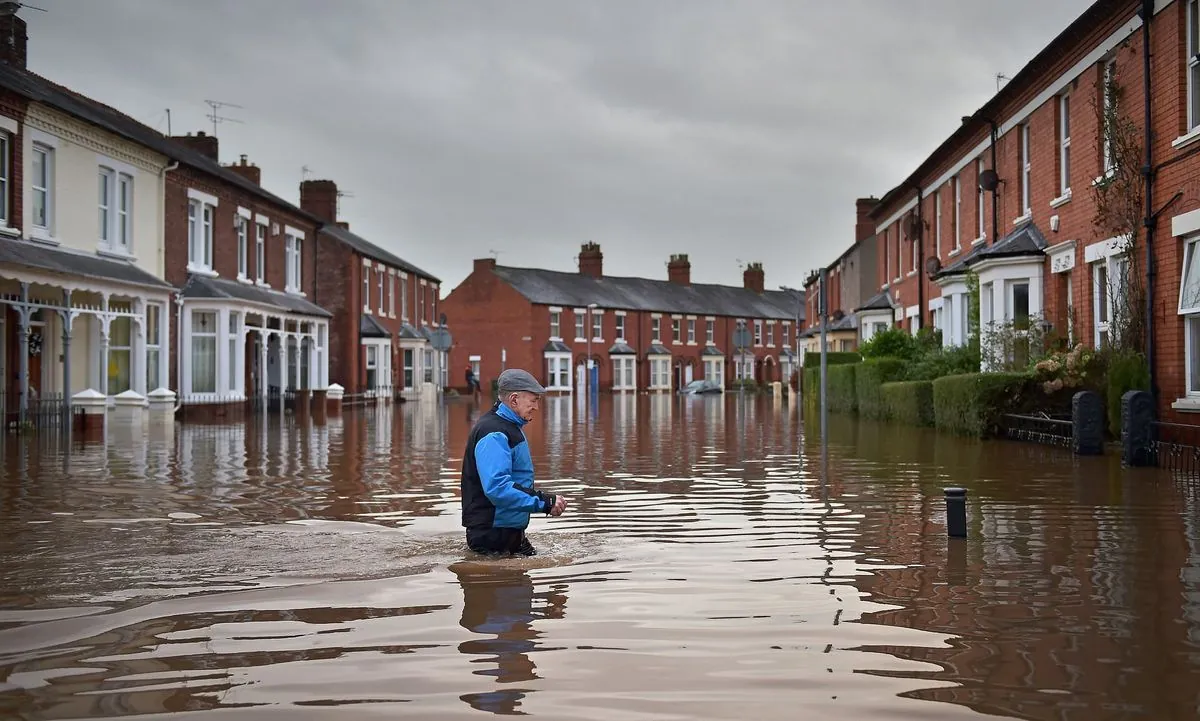UK Insurers Retreat from Flood Coverage Amid Rising Climate Risks
British insurers are pulling back from offering flood coverage due to increased claims, particularly affecting commercial properties and residential landlords. Climate change and urbanization are exacerbating flood risks.

In recent years, the United Kingdom has experienced a significant surge in flooding incidents, prompting insurers to reassess their risk appetite and adjust their coverage offerings. This shift is particularly impacting commercial properties and the approximately five million privately-rented homes in England that fall outside the scope of the Flood Re program.
Amanda Blanc, chief executive of FTSE 100 insurer Aviva, identified climate change as the primary challenge in property insurance. The Flood Re initiative, a joint venture between the government and insurers established in 2016 to provide affordable home flood insurance, reported that one-third of its claims since inception occurred in the 2023/2024 period alone. This stark increase followed the winter storms Babet, Ciaran, and Henk.

The insurance industry's response to this escalating risk has been multifaceted. Insurers are implementing higher premiums, reducing coverage, and adopting more granular underwriting methodologies. Jason Harris, CEO of International at global commercial insurer QBE, emphasized the impossibility of insuring properties with consistent annual flooding.
"A landlord-owned property perceived as risky could face an excess - the amount the owner has to pay before insurance kicks in - of 2,500 pounds ($3,175.25), rather than the usual 250 pounds."
The situation is particularly challenging for residential landlords, as lack of flood coverage can hinder financing options. This has led to the emergence of alternative insurance solutions, such as parametric products offered by companies like FloodFlash, which provide coverage based on pre-agreed trigger events.
Urbanization and development practices have exacerbated the flooding issue. Malcolm Roberts, CEO of global property insurer FM, highlighted the problem of reduced water runoff due to the conversion of farmland into concrete and roads. Additionally, the construction of over 100,000 homes on flood plains in England over the past decade has been described as "extraordinary" by Aviva's Blanc.
Climate change projections paint a concerning picture for future flood risks. In Medway, southeast England, which encompasses two major rivers, the annual frequency of a 1-in-100 year flood is expected to increase by 50% in the 2020s and by 320% by the 2090s, compared to historical norms.
As the insurance landscape evolves, both insurers and property owners must adapt to these changing risks. The industry's shift towards more precise, location-specific underwriting and the exploration of innovative insurance products reflect the ongoing efforts to navigate the challenges posed by climate change and urbanization in the flood insurance market.


































